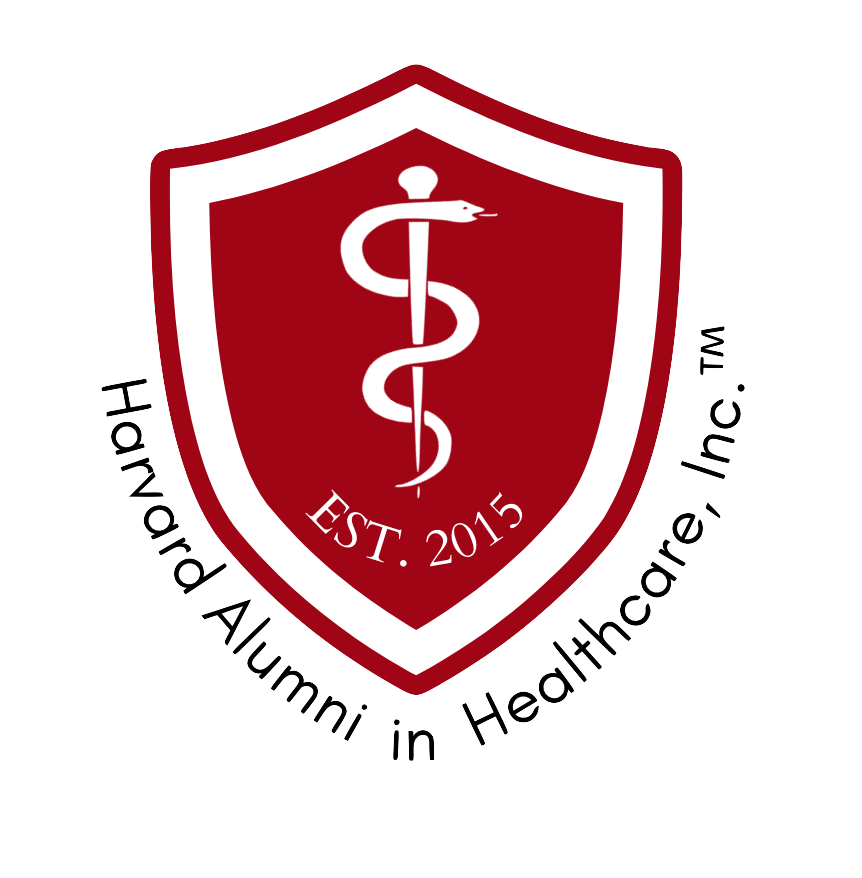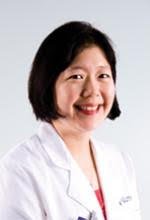Karen Kim MD, AB '98
My name is Karen Kim. I was a member of the class of ‘98 at Harvard, and I lived in Dunster house. I’m originally from California and grew up in LA and the San Francisco Bay area. I went to Stanford for medical school, which is very close to home for me, and that's where I met my husband, who is also a Harvard alumnus, class of ‘96. He's an engineer, and his first faculty position was in Cleveland, so Cleveland is where I did all my training. I completed my internal medicine residency at University Hospital Case Western and then went on to my GI fellowship at the Cleveland Clinic. When my husband’s new position took us to Cornell University in Ithaca, NY, I joined a practice called the Guthrie Medical Clinic, so I practice in Ithaca, New York now, where I’ve been for 10 years.
Why did you choose to concentrate in Gender Studies?
Many people in my family were surprised that I became a physician. I think everybody thought I was going to become a lawyer. I don't know if that's a good or bad thing, so maybe it's not terribly surprising that my concentration ended up being Women's Studies (Gender Studies). At the time, I was trying to decide between Biomedical Engineering and Gender Studies, which was just one of many strange dualities in my life. I think the reason that I ultimately decided to concentrate in Gender Studies was because I eventually made a commitment to pursue medicine. I figured that I would spend a great deal of time in medical school studying medicine, biology and anatomy, and this was the one time in my life when I could dedicate that time to something completely different. I will tell you that I actually think that my classes, not in the sciences, have more heavily impacted how I practice medicine than other subjects.
How has concentrating in Women, Gender, and Sexuality changed your perspective?
Sure, it was a little bit of a wayward path, and I'd say that my focus within Women's Studies really had nothing to do with being pre-med. Because I was pre-med at the same time I was doing Women’s Studies, it was really hard actually to fulfill all those requirements. My focus was more on social and cultural anthropology, so in my sophomore fall, I had to take core classes for my concentration.
I had to pick a history class, and I decided to take modern African history. This was in 1996, just a couple years after the end of apartheid, and I was taking this modern African history class. It was at that moment that I decided that I was going to take a leave of absence and go to Africa. At the time, Harvard did not have campuses in places like Rome or Cape Town. They didn't have any program where you could take a leave of absence and try to enroll in a university there. So I wanted to do something that was more focused on research. I had these vague thoughts in my mind that, well, maybe I want to study women's health. I took off the spring of my junior year, 1997. I decided to go to South Africa because I didn't speak French or any African language and figured this would be the easiest. I was also really fascinated about what was happening at the time in South Africa, which turned out to be one of the most amazing peaceful transitions in history. One of the pillars of the peaceful transition was the formation of something called the Truth and Reconciliation Commission, which was tasked with providing a forum for individuals to come forward and openly discuss crimes they had committed under the prior regime in exchange for immunity from prosecution. The idea was that access to the truth was in some ways more important than punishment of crimes (with the concern that many crimes would never come to light without such an inducement).
I ended up returning to South Africa the following summer to do some additional research on the Truth and Reconciliation Commission, and that's what became the subject of my senior thesis. Over the course of the Commission’s work, there was a concern that very women were coming forward to talk about their own experiences, so a hearing specifically dedicated to their stories was formed, and this testimony was the basis for my senior thesis.
While on the face of it, my current job seems to have little to do with that experience, but I think I bring an anthropological background to how I approach my patients. I see a very wide range of individuals– from Ivy League professors to dairy farmers and other people who reside in Ithaca. Many of the patients that I treat reside in extreme rural poverty. I feel like those experiences at Harvard outside of my science classes really prepared me for this role. The interactions that I have with my patients are what I love most about my job, and a lot of what I have to do is figure out what they're not telling me. I have to discern how to get them to trust me. I may not look like them, and I may have very little in common with how they live, yet I have to establish a sense of trust and then I have to figure out what's going on with them. Then I have to figure out how to get them to do what I recommend. Science is the minimum. I almost feel that the ability to establish trust and rapport with someone is even more important. All this is to say, I'm a big proponent of anybody taking either time off or time during college or just experiencing living in another country.
What is some advice you would have for a current undergraduate?
I believe really strongly in just doing what you love in college because college is an incredibly special time where you can do whatever you want. You can delve deeply into something, you are among such incredible people, and there are great resources at your fingertips. I remember marveling at all the classes. I decided to study something related to the history of medicine, and I wanted to do something on Christian science and Mary Baker Eddy. All of those original documents are right there at Harvard in the rare books collection. I just remember sort of being like “Wow! This is like probably the only time in my life when I can access this,” and it really has been. So yes, it was really hard because I’d have to go from writing a 20 page paper for this English class or this history class or this women's studies class and then have to study for an organic chem final. It was definitely a lot, and there is not a lot of overlap with the core curriculum, so it was a lot of requirements to fulfill. Indeed, in medical school, there should be more social sciences, frankly, like psychology and sociology but there just isn't or, at least when I was there, there wasn't. Even economics for that matter!
What do you think about the concept of a “lifestyle field” in choosing a specialty?
I was the only pre-med among my friends and blockmates, who were the people I spent the most amount of time with in college, so I was pretty ignorant about everything until I started medical school. The concept of a lifestyle field was unknown to me before I started medical school. I didn't come from a medical family, and it's not uncommon for people who are first generation physicians to think “Oh, I think I want to become a pediatrician,” mainly because it's probably the only physician you've ever encountered in your life. This was true for me. The only physician that I’d ever encountered was my own pediatrician. I think what was really important was that I chose it because I loved it, even though it was certainly not known for being a lifestyle field. I don’t regret that choice because I’m still doing what I love, and so it still feels like an incredible privilege. I think it’s also important to point out that in medicine, things change over time, and what might be considered a lifestyle field today may not be the case in another 10-15 years. The market, technology, and the world changes. So it’s best to do what you love, not because you think it’ll be less call or because it will pay more!
Karen Kim MD
Women’s Studies | AB 1998
Gastroenterologist
Compiled and Interviewed by Katie Garcia

